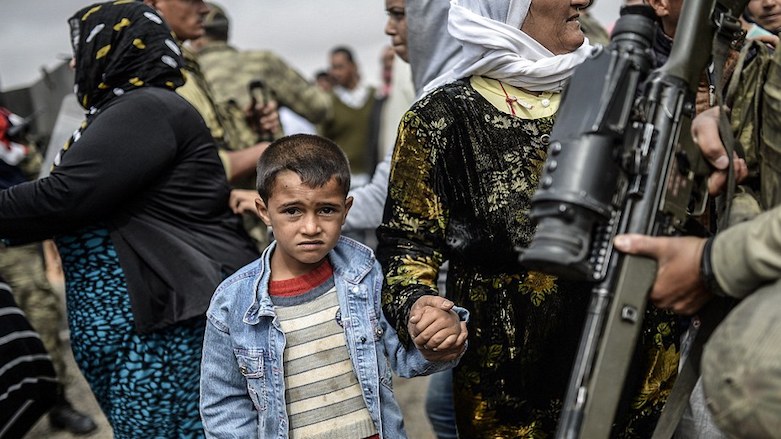IDPs increasing in Kurdistan due to sectarian conflict, threat of militias: KRG

ERBIL (Kurdistan 24) – The Kurdistan Regional Government (KRG) continues to exhaust its efforts to provide displaced persons and refugees with aid and services, and calls on humanitarian agencies to increase their support, a senior Kurdistan Region official said on Wednesday.
Marking World Refugee Day on June 20, KRG Coordinator for International Advocacy warned in a statement that the number of IDPs in the Kurdistan Region is increasing “due to sectarian conflict, the presence of [Iran-backed] militias, and the threats of terrorists.”
Since the emergence of the so-called Islamic State, Kurdistan has provided a haven for people fleeing the extremist group from parts of Iraq and neighboring Syria.
According to KRG statistics, the Kurdistan Region is currently hosting nearly 1.4 million Internally Displaced Persons (IDPs) and refugees.
Zebari noted that since the beginning of 2018, an additional 6,000 people had fled to seek safety in Kurdistan, mainly due to an increase in sectarian violence and pressure from Iran-backed militias in disputed territories.
The massive influx of displaced persons has caused a burden for the Region which has called for international support to help deal with the crisis.
“The huge influx of refugees to the Kurdistan Region increased its population by 23 percent, and this has become a huge burden on the KRG economically and financially,” Zebari said in the statement.
He emphasized that “the KRG never had in its policy to forcibly return the IDPs and refugees to their original areas of residence unless on a voluntary basis,” adding that since January, 2,055 displaced persons chose to return home.
The Coordinator for International Advocacy also revealed that the KRG had provided displaced persons and refugees with resident and work licenses.
“This gave a lot of refugees and IDPs an employment opportunity,” Zebari said.
“Nevertheless, the huge number of refugees has put a heavy economic burden on the KRG, and it cannot tackle it alone,” he concluded, calling on international organizations to increase their aid.
